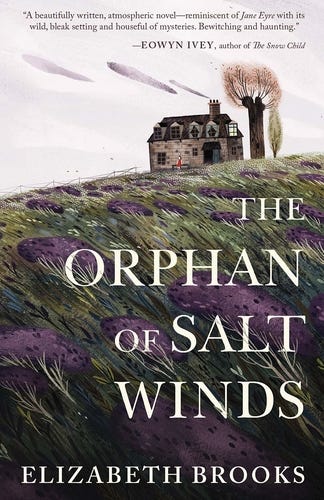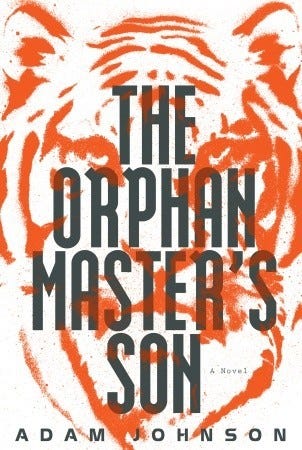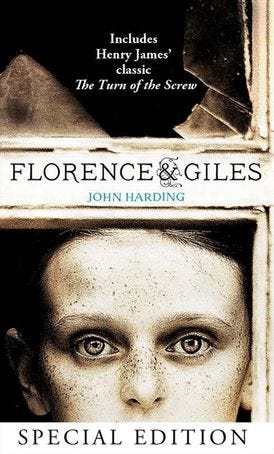Elizabeth Brooks, author of “The Orphan of Salt Winds,” on the literary trope of the foundling
From Cinderella to James Bond, via Moll Flanders and Tom Sawyer, there is something about an orphan that appeals to storytellers regardless of era, culture or genre. Perhaps this is because an orphan engages our sympathies before the story even begins: we just have to root for a character (especially a child) who has suffered the loss of their mother and father. But there are other factors too. From a writer’s — and a reader’s — point of view, there is something highly attractive about a character who is self-explanatory and self-fashioning (no need to plough through the biographies of all her forebears in order to make sense of her…). There is also the in-built “quest” aspect — whether this involves a literal search for long-lost parents or a subtler search for self-knowledge and identity. Above all, there is the mystery inherent in someone who sets out on life alone, without the familial structures that keep most of us feeling safe and/or confined.

As The Orphan of Salt Winds began to take shape in my mind — and well before I had the title for the book — I knew that my main character, Virginia, would need to draw on this tradition. Virginia begins the novel as a ten-year-old orphan, alone in a puzzling and difficult adult world. Having grown up in a children’s institution, without the safety-buffer of familial love, she is unable to take anything for granted. She sees her newly adopted home, Salt Winds, with a vision that is both anxiously perceptive and childishly skewed: a wonderfully sympathetic point of view from which to write.
The more I wrote about Virginia, the more I found myself looking out for books that made use of an orphan’s perspective. Here are a few of my favorites.

The Orphan Master’s Son by Adam Johnson
Shortly after Jun Do’s birth in a North Korean orphanage, his mother is carted off to Pyongyang, never to be seen again. His father (the eponymous orphan master) is unable or unwilling to show favoritism, so Jun Do is punished, starved and over-worked along with the other orphans. This is a dark, satirical novel about what happens when love is forbidden and a totalitarian regime attempts to take the place of family.

Red Dust Road by Jackie Kay
A memoir, Red Dust Road follows Jackie Kay’s search for her birth parents. Given that both are still alive (the book begins memorably in Abuja, Nigeria, with Jackie meeting her father for the first time; she meets her Scottish mother later in the book), you might argue that this is not, strictly-speaking, an orphan story. I think it’s close enough, as it deals with all the issues that arise from the best orphan stories: Who am I, and what does identity even mean? Where do I belong and why? Who or what can be said to define me?

Never Let Me Go by Kazuo Ishiguro
The main characters in this novel — Kathy, Tommy and Ruth — are clones, brought into being by the state for its own utilitarian purposes. The three meet at Hailsham, a sinister English boarding school, where they are watched over and protected by mysterious “guardians.” The story follows them into early adulthood as they slowly discover who, what and why they are. It’s a heartbreaker of a book, beautifully written and chillingly realized, about a society in which the parent-child relationship is neither needed nor valued.
Kazuo Ishiguro’s ‘Never Let Me Go’ Is a Masterpiece of Racial Metaphor

David Copperfield by Charles Dickens
Nobody did heart-rending orphan stories quite like the Victorians, and Charles Dickens was surely master of them all. David is already fatherless when the story begins, but he experiences a few years of childhood bliss before his mother’s catastrophic decision to remarry. David’s sadistic stepfather has to be one of the most loathsome characters in literature. You and I know exactly whose side we are on, though, and perhaps that’s the point. When David is happy with his mother, we can enjoy his story in a relatively detached way. When he is alone and vulnerable, face to face with Mr. Murdstone, our protective instincts leap into action. At that wonderful moment when he turns on his abuser and bites him, we all shout “Yes!” because it’s a victory for our hero, albeit a small and dangerous one.

Jane Eyre by Charlotte Brontë
Like David Copperfield, Jane Eyre is orphaned into an unjust adult world. Her treatment at the hands of Aunt Reed, Mr. Brocklehurst, et al makes her — and us — burn with indignation. It also makes her strong and self-reliant, which is just as well, because these are qualities she will need to draw on, time and again, throughout her story. Jane Eyre, who manages to begin her life anew not once but several times throughout the novel, inspires us. “I am no bird; and no net ensnares me,” Jane famously, and remarkably, declares. Who, in real life, can honestly say the same? Only an orphan (or perhaps only a literary orphan) can lay claim to that degree of autonomy.

Anne of Green Gables by L.M. Montgomery
Anne of Green Gables is a joyous children’s classic. Like its close relations — The Ugly Duckling, Cinderella, Ballet Shoes, The Secret Garden, A Little Princess, James and the Giant Peach — it is a story about rebirth and blossoming. Anne’s arrival in Avonlea is the start of something good, for herself and for everyone around her. There’s no such thing as normal in the eyes of a newly adopted eleven year old, and that’s an ideal point of view from which to tell a story.
I re-read Anne of Green Gables last week, for the first time since I was little. The color and character of the story had remained with me over the years, although the details had faded. I had no idea, for example, how strangely and darkly my own novel echoed Montgomery’s opening chapters. In both books, an orphaned girl is adopted by a childless couple, and her new father brings her home. She bonds with him immediately, but relations with her new mother are strained. She doesn’t quite fit in; isn’t quite what the neighborhood expects. What will become of her? What will become of them all?
Why ‘Anne of Green Gables’ and ‘Little Women’ Still Inspire Us Today

Florence and Giles by John Harding
The childlike and the sinister work well together. There’s nothing creepier than a creepy child (doll/ clown/ nursery-rhyme/empty swing); the innocent and the malevolent meeting like notes in a deliciously jarring chord. A literary orphan is especially well placed to play the creepy child role, because he or she is inherently mysterious. Where did she come from? What has she inherited, and when will that inheritance come to light? What does she remember? What does she know, that we don’t know? Who is she? I love Florence (how could anyone fail to love that voice?) but I’m scared of her too. Every reader’s instinct is to love a lonely little orphan like Florence, but Florence does not belong in the box marked “sweetness and light.” She is a human being: complex, strange, enchanting, cruel and — in the end — unknowable.

About the Author
Elizabeth Brooks grew up in Chester, England. She graduated from Cambridge University with a first-class degree in Classics, and lives on the Isle of Man with her husband and two children.

A Reading List of Orphans in Literature was originally published in Electric Literature on Medium, where people are continuing the conversation by highlighting and responding to this story.









